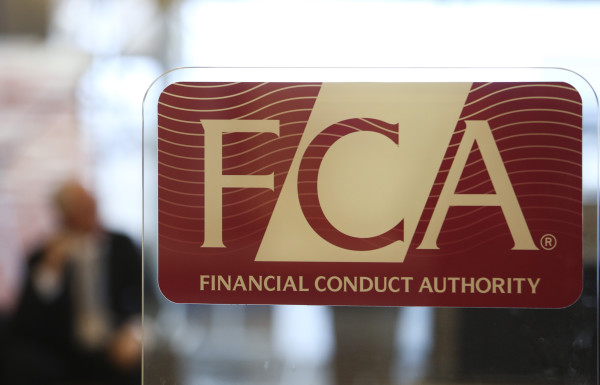

The City watchdog has reprimanded Aviva for 'potentially misleading' the market in its share buyback saga from 2018.
In a final notice published today (October 26), the Financial Conduct Authority publicly censured the pensions and insurance giant for failing to ensure its market updates were not misleading.
The watchdog found that Aviva had failed to consider adequately how its announcement at the time might be interpreted by the market, especially the holders of the shares in question.
The incident concerns preliminary year-end results from March 2018, in which Aviva said it could legally cancel nearly half a billion pounds worth of preference shares held by investors.
When the shares were first issued by Aviva, the firm had made it clear that it had the right to buy them back at face value, even if they were trading at a price considerably above that.
In the results statement in question, Aviva said it was considering taking this action.
According to the FCA's findings, the results gave the impression to some investors that Aviva intended to cancel the preference shares at par value — the ‘face value’ of the shares, rather than the market value the stocks were trading at.
At the time the shares were trading at above their par value, so the statement raised concerns holders would incur losses if the shares were cancelled.
As investors took action to sell at the above par trading price, the market price for the preference shares fell between 20 and 26 per cent on the day of the announcement.
But Aviva had not decided to cancel the shares in question and the impression given by the announcement was not accurate. The FCA said Aviva’s breach was serious, but not intentional.
Aviva clarified its intentions in a further regulatory announcement which expressly stated it had decided to take no action to cancel the preference shares.
It also established a payment scheme for investors who sold their shares at a price lower than the price the shares returned to following the clarification. Some 927 claims were made to Aviva through the scheme, costing the company £7.3m.
The controversy over the affair hit the headlines at the time, with Nicky Morgan, then chairwoman of the Treasury Select Committee, writing to the City watchdog urging it to investigate Aviva's actions.
FCA findings
Mark Steward, executive director of Enforcement and Market Oversight, said: “This was a significant oversight by Aviva that confused the market for preference shares. Firms must ensure that announcements to the market are clear and not misleading.
“But for Aviva’s prompt clarification and the payment scheme, this case could have led to a financial penalty.”
The FCA said Aviva knew a significant proportion of the shareholders involved were retail investors, but it did not make clear it had made no decision to cancel the shares or clarify that there were other options that would enable holders of the shares to receive more than par value.
Therefore the FCA found it “should have been obvious” that the announcement had the potential to mislead preference shareholders into believing Aviva intended to cancel its preference shares at par value.
A spokesperson from Aviva said it accepted the FCA's decision.
They added: "This was a disappointing episode for which we are sorry and lessons have been learned.
"We recognise the uncertainty created for preference shareholders two years ago while we were considering out options and subsequently made discretionary goodwill payments to impacted preference shareholders."
imogen.tew@ft.com
What do you think about the issues raised by this story? Email us on fa.letters@ft.com to let us know.



